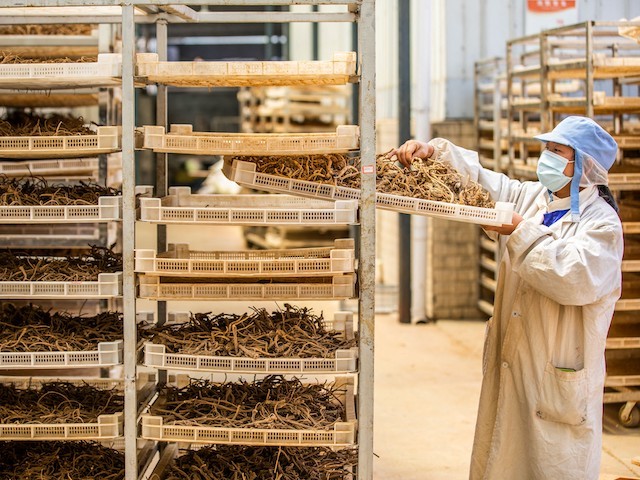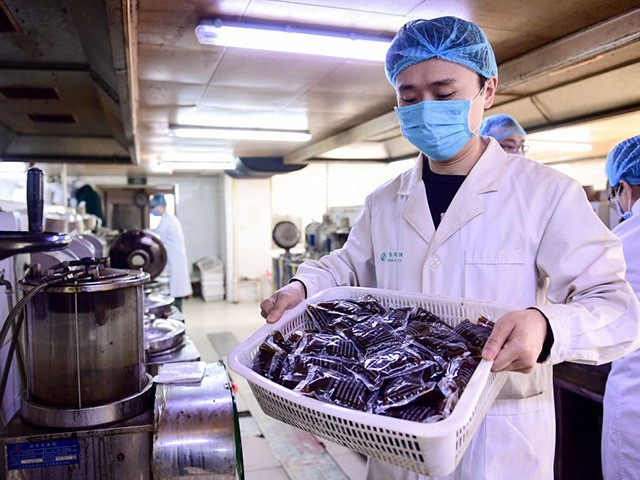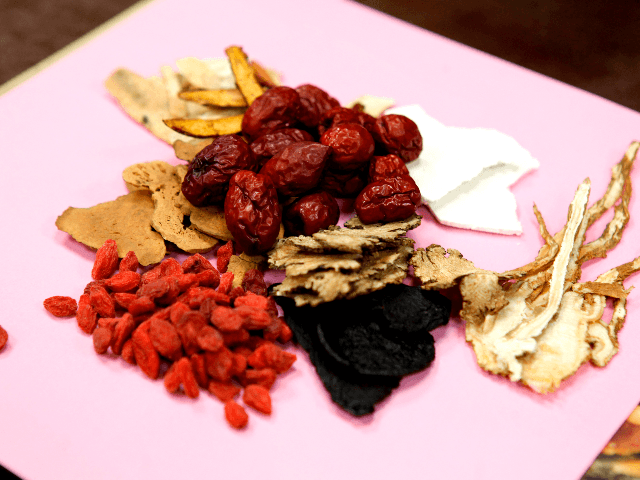Prominent Chinese neurologist Rao Yi, president of Capital Medical University in Beijing, on Wednesday criticized the government’s decision to ship millions of doses of a traditional Chinese herbal cure to Shanghai, even as the city’s captive population struggles to find food and medicine during a grueling coronavirus lockdown.
Rao — who lived and studied in the United States for many years, but was blacklisted from obtaining a U.S. visa in the closing days of the Obama administration for reasons he says are unclear — trenchantly noted the traditional Lianhua Qingwen cure has no proven effectiveness against Chinese coronavirus.
“Dispatching of [Chinese coronavirus] medicines should follow rigorous tests and examinations. No fake and shoddy products should be given to the public,” Rao said in a social media post.
“If the efficacy of Lianhua Qingwen has never been strictly proven, the mandatory dispatch would hurt the interests of people in shortage of food and drug necessities,” he said.
“It should not have happened that a medication with no effect to prevent Covid-19 [Chinese coronavirus] was sent to healthy people. It’s even more inappropriate to squeeze the logistics capacity for lifeline products,” a group of medical experts similarly argued in a Sunday post on Chinese medical website DXY.

This photo taken on March 24, 2021 shows a worker drying traditional Chinese medicinal herbs at a factory in Bijie in China’s southwestern Guizhou province. (STR/AFP via Getty Images)
This unusually stern criticism from top Chinese doctors threatens to derail a very profitable gravy train.
Lianhua Qingwen is an herbal concoction, commonly consumed in capsule form, that includes honeysuckle, licorice root, apricot seeds, and forsythia. It is marketed by a company called Shijiazhuang Yiling Pharmaceutical, owned by billionaire Wu Yiling.

This photo taken on February 20, 2020 shows a medical worker holding bags of liquid traditional Chinese medicine at a hospital in Shenyang in China’s northeastern Liaoning province. (STR/AFP via Getty Images)
For hazy reasons having to do with China’s push to export its traditional medicines to the rest of the world — and probably more than a little good old-fashioned corruption — Lianhua Qingwen was granted regulatory approval as a coronavirus medication and endorsed by some influential figures, including influential government medical expert Zhong Nanshan and Hong Kong chief executive Carrie Lam.
Zhong, incidentally, appears to have tumbled off his lofty Communist Party perch by questioning the regime’s “dynamic zero-Covid” lockdowns. He wrote an English-language article about “reopening” the country to “normalize socio-economic development” and synchronize Chinese policy with the rest of the world. The article was translated into Chinese on Monday and deleted by Communist censors within a matter of hours.
There is absolutely no clinical evidence that the herbal remedy is effective at preventing or treating Chinese coronavirus infections, as worldwide health authorities including the U.S. Food and Drug Administration pointed out.
Shijiazhuang Yiling’s share price skyrocketed after the Chinese government began pushing Lianhua Qingwen as a coronavirus medication, especially in Hong Kong, which had an exceptionally severe outbreak of the omicron variant. Demand for the herbal remedy increased to the point that Hong Kong officials worried people would get sick from buying cheap knockoffs of the concoction that were even worse than useless.
The pushback against Lianhua Qingwen received a boost from a popular figure on Chinese social media named Wang Sicong, son of real estate tycoon Wang Jianlin. Last week, the younger Wang shared a video questioning the usefulness of the herbal remedy with his 40 million followers on Weibo, the tightly controlled Chinese version of Twitter. He followed this up with a post calling for a securities fraud investigation of Yiling Pharmaceutical.
Wang deleted the latter post within an hour, having apparently realized it might upset powerful Communist Party patrons of the pharmaceutical company, but it was too late. As of Tuesday, the billionaire’s son had been banned from Weibo for “violation of related laws and regulations.”
Wang’s now-deleted and suppressed criticism was nevertheless potent enough to knock 10 percent off the value of Yiling Pharmaceutical stock when the Shenzhen market opened on Monday.
The ban might also have been prompted by Wang’s public refusal to submit to coronavirus testing, a stance that won him applause as a grassroots hero from Chinese citizens subjected to endless rounds of mandatory tests in locked-down cities like Shanghai.
On Wednesday, the skeptical Health Sciences Authority (HSA) of Singapore announced it has begun the first serious clinical trial to determine if Lianhua Qingwen is effective as a therapeutic for the Wuhan coronavirus.
The study, which will ultimately include 300 participants of various ages, is intended to determine if the herbal remedy helps reduce several clinical symptoms from mild Chinese coronavirus infections. HSA previously warned Singaporeans there was no evidence that traditional Chinese medicine (TCM) products could be used to prevent or treat Chinese coronavirus, despite claims to the contrary on social media.
Various agencies of the Chinese state have promoted TCM for coronavirus treatment since the early days of the pandemic, pushing everything from acupuncture to soup as treatments for Chinese coronavirus and its complications. Beijing even made a show of distributing TCM kits to Chinese students living abroad, with Lianhua Qingwen included in the kits. Questioning the effectiveness of TCM, as Rao and his colleagues did this week, was frowned upon, to say the least.
The TCM industry generates at least $27 billion in annual profits. The coronavirus pandemic fueled 70 percent growth in the market over the past five years. Dictator Xi Jinping is an outspoken advocate of TCM, praising it as a “treasure of Chinese civilization” and ordering Chinese doctors to include it alongside Western medical treatments.
The Chinese government has long desired approval for TCM as coronavirus therapy from the World Health Organization (W.H.O.). In January, the Chinese National Administration of Traditional Chinese Medicine said it presented a report on the effectiveness of TCM to W.H.O. director Tedros Adhanom Ghebreyesus, who purportedly accepted it “with delight.” W.H.O. began pushing traditional Chinese medicine in April, without any hard scientific evidence to back up its recommendations.

COMMENTS
Please let us know if you're having issues with commenting.